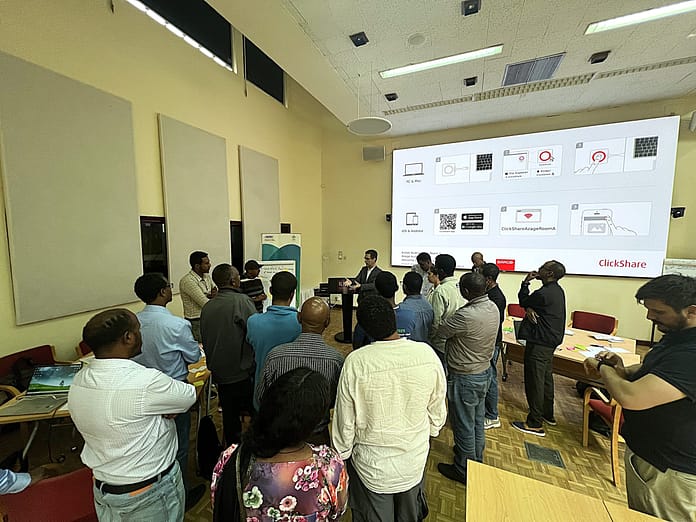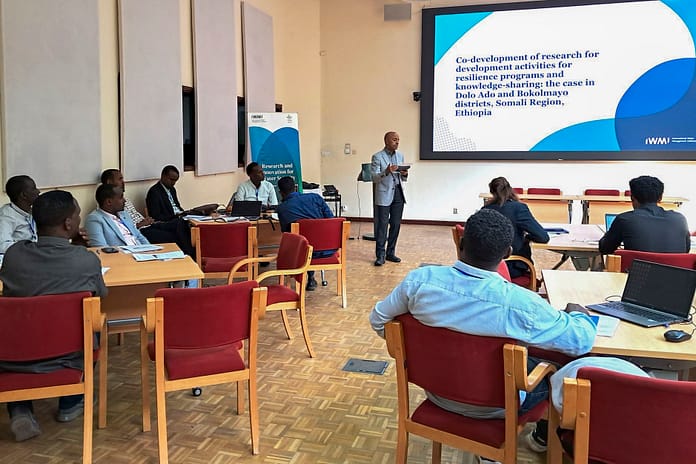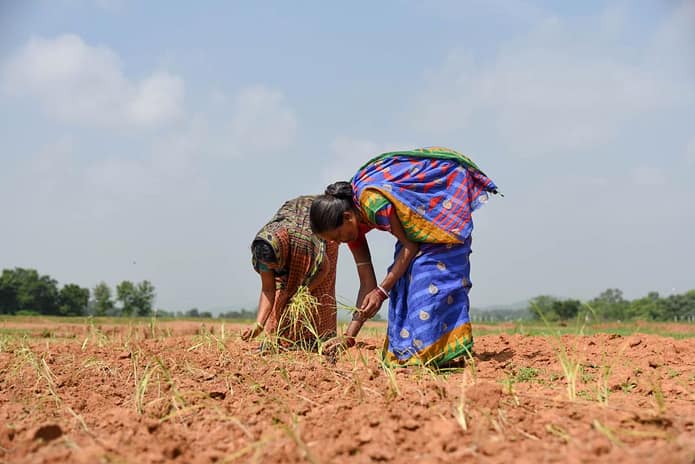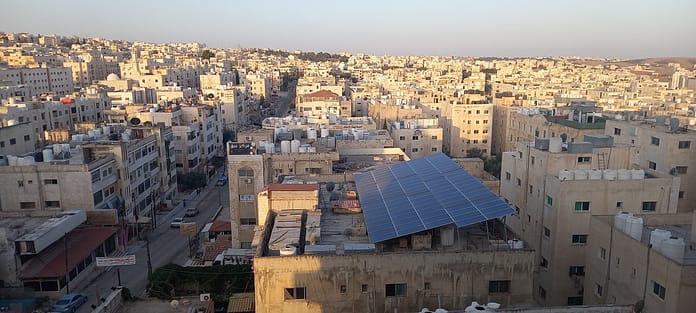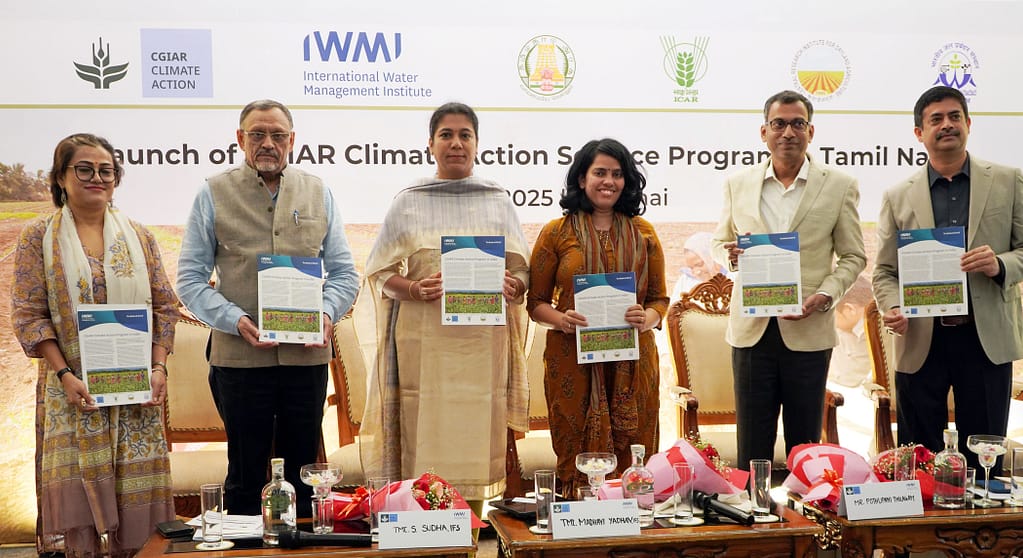
In India, the International Water Management Institute (IWMI) and its partners are accelerating climate action in Odisha and Tamil Nadu. The CGIAR Climate Action Program brings together policymakers, donor agencies, researchers and civil society to co-design and implement strategies that blend climate foresight, digital services, early warning systems, locally led adaptation, resilient water systems and low-emission development pathways.
Odisha: driving resilience through convergence and innovation
Odisha, located on India’s cyclone-prone east coast, is one of the most climate-vulnerable states in the country. Between 1999 and 2024, the state endured a disaster almost every year — including floods, droughts, cyclones and heatwaves. This risk landscape has catalyzed pioneering reforms such as the establishment of the Odisha State Disaster Management Authority (OSDMA) and proactive policies like the State Action Plan on Climate Change (SAPCC).
The Climate Action Program is aligned closely with Odisha’s Vision 2036. First actions will focus on climate-resilient agriculture, flood and drought risk management and digital climate advisory services. Pilot interventions will be rolled out in drought-prone districts like Bolangir and Kalahandi and flood-prone areas such as Kendrapara and Puri.
“The CGIAR Climate Action Program, with its integrated approach and global expertise, aligns well with the state’s Vision 2036 strategy. We are ready for a strong, action-oriented partnership,” said Anu Garg, Additional Chief Secretary, Government of Odisha. She proposed launching 1,000 climate-smart villages, expanding solar-based irrigation and scaling watershed interventions to build a model of flood and drought resilience.
Kamal Lochan Mishra, Executive Director of OSDMA, echoed the need for actionable partnerships. He said, “through strategic collaborations with IWMI and CGIAR, we are finding synergies that blend global research with local action — from developing climate-smart villages to strengthening real-time data systems for disaster preparedness.” He emphasized the urgency of upgrading early warning systems, weather stations and interactive data platforms to enable anticipatory responses and safeguard livelihoods.
Climate action stakeholders in Odisha agree on the importance of mainstreaming science into policy, leveraging the state’s strong institutional base and national schemes such as PM-KUSUM which seeks to ensure energy security for farmers; Mission Mausam which aims to make India a climate-smart nation; and Jal Jeevan Mission which envisions to provide safe and adequate drinking water. By injecting innovation into existing programs like the Odisha Integrated Irrigation Project for Climate Resilient Agriculture (OIIPCRA) and the Odisha Millet Mission, the CGIAR program seeks to enhance adaptive capacities across agriculture and water systems.

Tamil Nadu: bridging tradition and technology for climate adaptation
Facing a different climate risk profile, Tamil Nadu is increasingly challenged by droughts, erratic monsoons, floods, cyclones and heatwaves. Agriculture, water supply and urban infrastructure are all under stress, particularly in districts dependent on water-intensive crops and vulnerable to rainfall variability.
The state has responded proactively through its updated SAPCC, the Tamil Nadu Green Climate Company and the Tamil Nadu Climate Change Mission (TNCCM). Tamil Nadu has also surged to the top of national climate performance indices, reflecting a robust governance framework and data-driven policy innovation.
In Tamil Nadu, the CGIAR Climate Action Program focuses on digital advisories, drought resilience, anticipatory action and locally led adaptation in its arid zones (e.g., Ramanathapuram, Virudhunagar) and flood-prone coastal regions (e.g., Chennai, Cuddalore). These efforts are aligned with the Tamil Nadu Drought Mitigation Project and recent flood management programs.
“The government is not seeking more reports — we want actionable recommendations,” stated Sudha Ramen, Member Secretary, State Planning Commission. “We are working to integrate expert insights and existing studies into meaningful policies, and we welcome collaboration with CGIAR.”
Water systems are a key focus of climate action stakeholders in Tamil Nadu. The state’s legacy of traditional tank-based water management, once community-run and climate-resilient, is being revived. “To build climate resilience, we must prioritize the restoration of traditional systems through integrated approaches that combine modern science with local knowledge,” stated G.R. Radhakrishna, Deputy Chief Engineer, Water Resources Department. Over 30,000 tanks are currently being rejuvenated with World Bank support, and CGIAR’s tools are expected to enhance water productivity assessments and infrastructure resilience.
The state is also advancing anticipatory action systems. A multi-hazard early warning centre has been established in Chennai, along with tools like the TN Alert app and real-time hazard forecasting. These efforts, supported by Tamil Nadu Agricultural University (TNAU)’s tiered forecasting models and climate-smart farm advisories, are enabling faster, localized responses to hydro-climatic events.
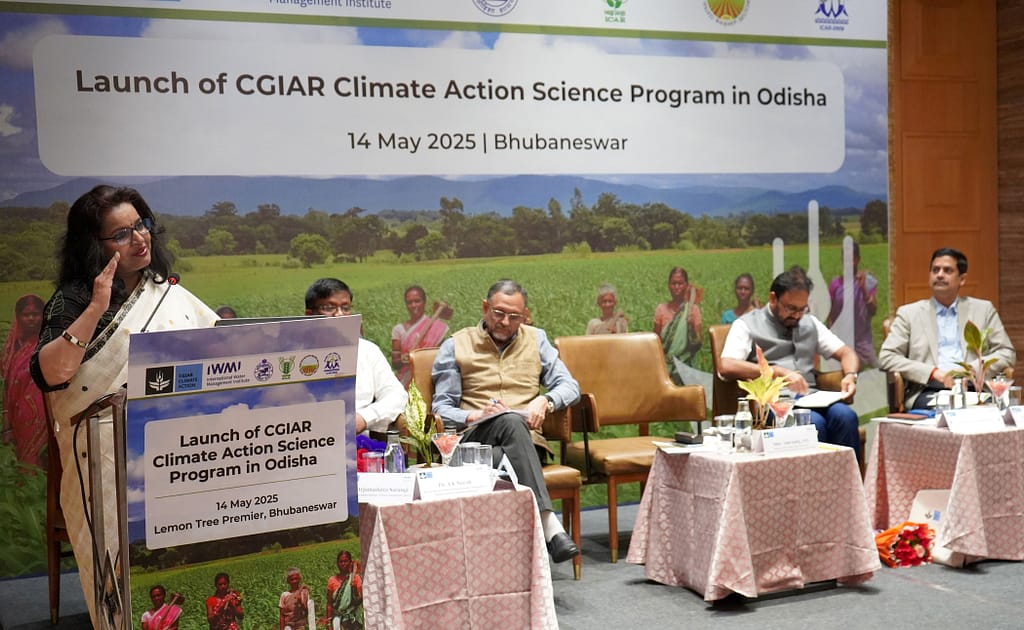
A unified framework for climate-resilient development
Stakeholders in Odisha and Tamil Nadu demonstrate how the CGIAR Climate Action Program acts as a catalyst for climate resilience in India — bridging science and governance, global research and local action. By engaging with state governments, aligning with development strategies like Odisha’s Vision 2036 and Tamil Nadu’s SAPCC, and prioritizing vulnerable geographies, the program enables scalable and system-wide interventions.
Central to its approach is locally led adaptation, which emphasizes community ownership, social inclusion and grassroots empowerment. It promotes innovation not just through technology, but through the co-creation of solutions that are context-specific and equity-centered.
“Meeting the Sustainable Development Goals requires a shift in mindset — thinking beyond water to integrate water-positive interventions with farming systems and economic activities,” said Alok Sikka, Country Representative of IWMI in India. “Locally led adaptation must be at the heart of this approach to accelerate progress in addressing the climate crisis.”
In the months ahead, both states will co-design pilot programs to develop capacity and scale impact. With strategic partners on board, the CGIAR Climate Action Program is poised to transform India’s climate response — making resilience both inclusive and actionable.


